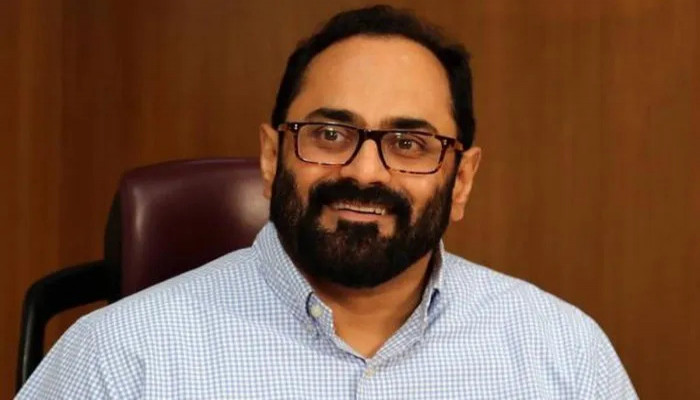Rajeev Chandrashekhar slams Karnataka govt’s vehicle subsidy scheme for religious minorities
- In Reports
- 09:13 AM, Sep 09, 2023
- Myind Staff
Union Minister of State, Rajeev Chandrashekhar criticized the Karnataka Congress administration on Friday over its appeasement policies. The Union Minister emphasized the requirements and rules for the Subsidy Scheme for the Purchase of Taxi/Goods Vehicle/Passenger Autorickshaw of the Congress government. Notably, only religious minorities are eligible for the aforementioned project, which is run by the Karnataka Minorities Development Corporation Limited.
According to an advertisement the minister included in his tweet, religious minorities can purchase auto rickshaws, taxis, and goods vehicles with a subsidy of up to 50% of the vehicle's worth. The Swavalambi Sarathi Scheme was launched by Karnataka Housing and Minorities Welfare Minister Zameer Ahmed Khan last month.
Speaking to X, Minister Chandrashekhar claimed that the programme was only intended for non-Hindus, excluding even the economically struggling Hindu populations. According to the union minister, it is blatant discrimination and a breach of Article 14 of the Constitution when a party travels abroad and claims that India's constitution is in jeopardy. He called it “State-sponsored Conversion inducement”.
He called the scheme an ‘example of shameless, lazy, appeasement politics of bribing certain communities by Rahul Gandhi’s Congress in Karnataka.’
Rajeev Chandrashekhar said, “Shameless bribing of a community by using public resources meant for All Kannadigas. Brazen discrimination & violation of Art 14 of the constitution from a party that goes abroad and talks of Bharat’s constitution being under threat. State-sponsored Conversion inducement. This is the appeasement and corrupt politics of Dynasts of UPA/I.N.D.I alliance.”
The minister also brought up the potential for corruption with the plan, claiming that people might purchase automobiles with subsidies and then sell them right away for a price that is greater than the subsidized price but lower than the market price, making a profit. He gave an example that someone can buy a vehicle worth ₹6 lakh for ₹3 lakh under the scheme, and then sell it for ₹5 lakh, making a profit of ₹2 lakh.
Although the programme instructions state that a vehicle purchased under this programme should not be sold to a third party while the loan is still outstanding, people can nevertheless profit from this if the vehicle is sold informally and the registration is still in place. However, doing so would be against the law, and if the car is involved in an incident or an accident, both the buyer and the seller might face issues.
Image source: Business Line







Comments